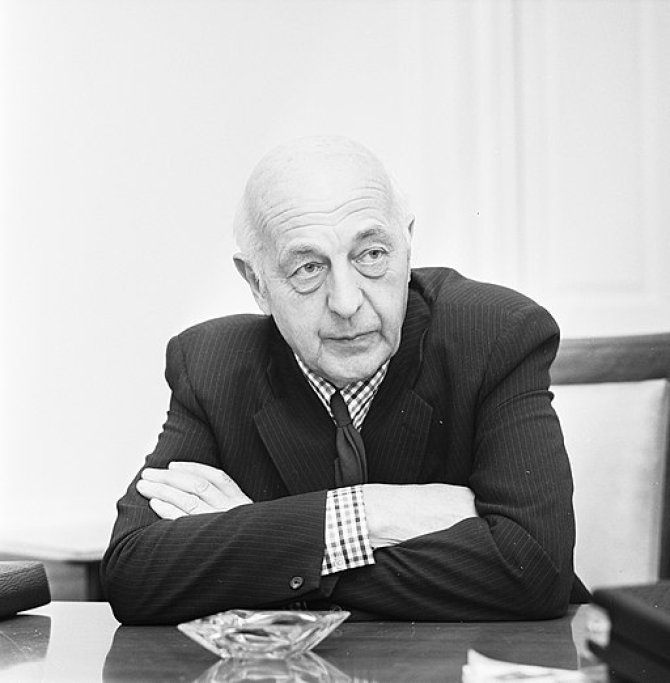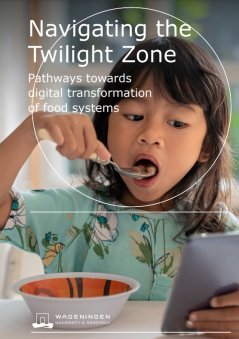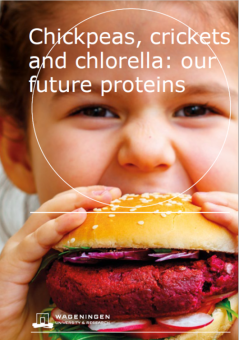Mansholt lecture
The Mansholt lectures, named for the great Dutch European politician and thinker Sicco Mansholt, are organised by Wageningen University & Research to discuss European policy and issues in our domain: nutrition, agriculture and sustainable livelihoods.
During the yearly Mansholt lectures, WUR presents multidisciplinary views on aspects of the European policy and recommendations to adjust this policy. The policy views and recommendations are discussed during the meeting with representatives from scientific community, governments and business.
View the livestream
- Unfortunately, your cookie settings do not allow videos to be displayed. - check your settings
Mansholt lecture 2023: Nature based approach for Europe
Climate change and biodiversity loss are the biggest challenges for the 21st century. The world is already 1.2 °C warmer and the impact of climate change such as heat waves, wild fires, floods and drought are being experienced around the globe. Also Europe is vulnerable for the impacts of climate change. The European Green Deal is a response to these challenges aiming to transform Europe to the first climate neutral continent by 2050. It also aims to protect, conserve and enhance the EU's natural capital, and protect the health and well-being of citizens from environment-related risks and impacts.
- Unfortunately, your cookie settings do not allow videos to be displayed. - check your settings
Mansholt lecture 2022: Nature positive futures
The sixth edition of the Mansholt Lecture is about nature positive futures: food systems as a major catalyst for change. How do we need to transition agricultural production and the food system from where we are now to where we need to go to create a liveable planet in the long term? And how do we ensure that the transition is sustainable, fair and just to everyone, including local and vulnerable communities?
- Unfortunately, your cookie settings do not allow videos to be displayed. - check your settings
Mansholt Lecture 2021: Pathways towards digital transformation of food systems
The fifth edition of the Mansholt lecture discussed the options and challenges for stakeholders in the transition towards a sustainable digital innovation ecosystem.“We don’t need more apps. We need a system”. This short quote of a farmer reflects the high degree of fragmentation and discontinuity in innovation processes we observe. More focus on the user readiness of technologies and support by multi-actor ecosystems is required, in which innovations are embedded in a system approach and tested in living labs. These are important pathways towards a sustainable digital innovation ecosystem and to navigate through the Twilight Zone.
- Unfortunately, your cookie settings do not allow videos to be displayed. - check your settings
Mansholt Lecture 2019: The Future of Proteins
The fourth edition of the Mansholt lecture focusses on the future of proteins, reflecting on the challenges and discussing policy recommendations. As part of the transition to a fully biobased economy, WUR calls for a new focus on production and consumption. We envision a future in which protein production will need to be sustainable, affordable and healthy. Purposeful combinations of plants, animals, and microorganisms from land and sea will be tailored to local conditions, even where resources are scarce. Europe needs to consider creating a European policy on protein transition.
About Sicco Mansholt
Sicco Mansholt was a farmer who entered politics after the war. Mansholt and his colleagues in Europe initiated the modernization of European agriculture with an emphasis on increasing productivity, farmers’ incomes, and food supply, with stable and affordable prices for producers and consumers.
With the increasing production, land and resources become limiting; residuals of crop and livestock production become problematic waste; emissions related to production become a burden for the quality of soil, water and air; health issues related to production intensification become a major concern.











